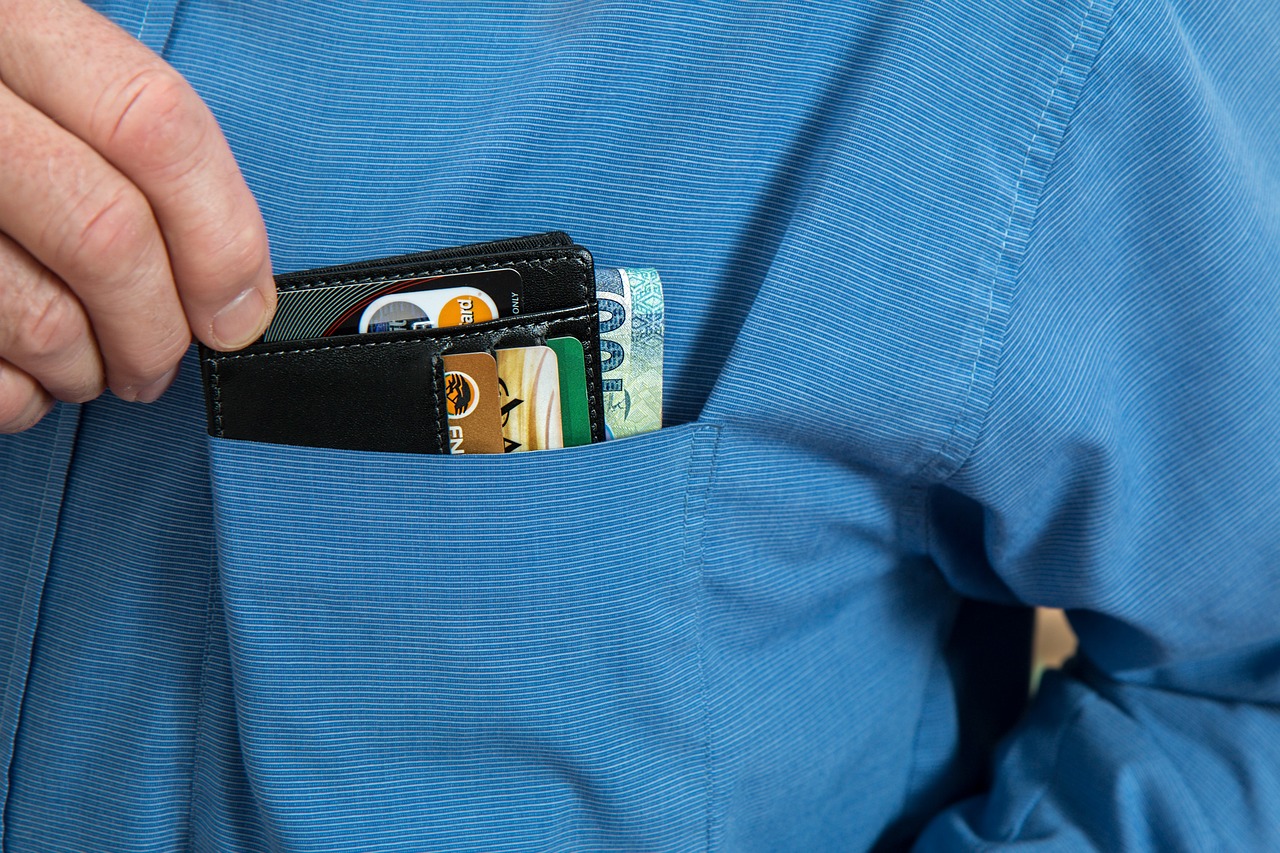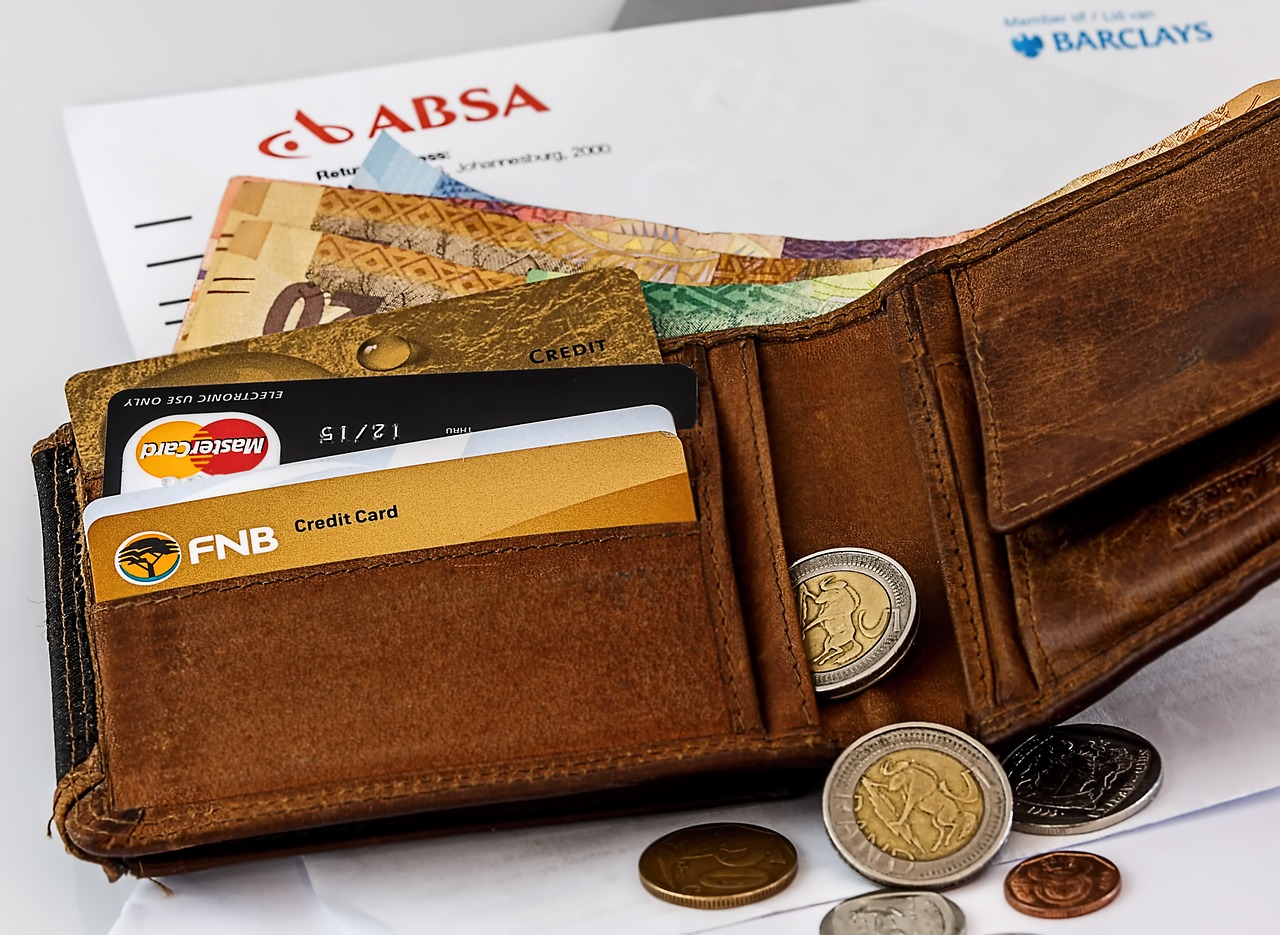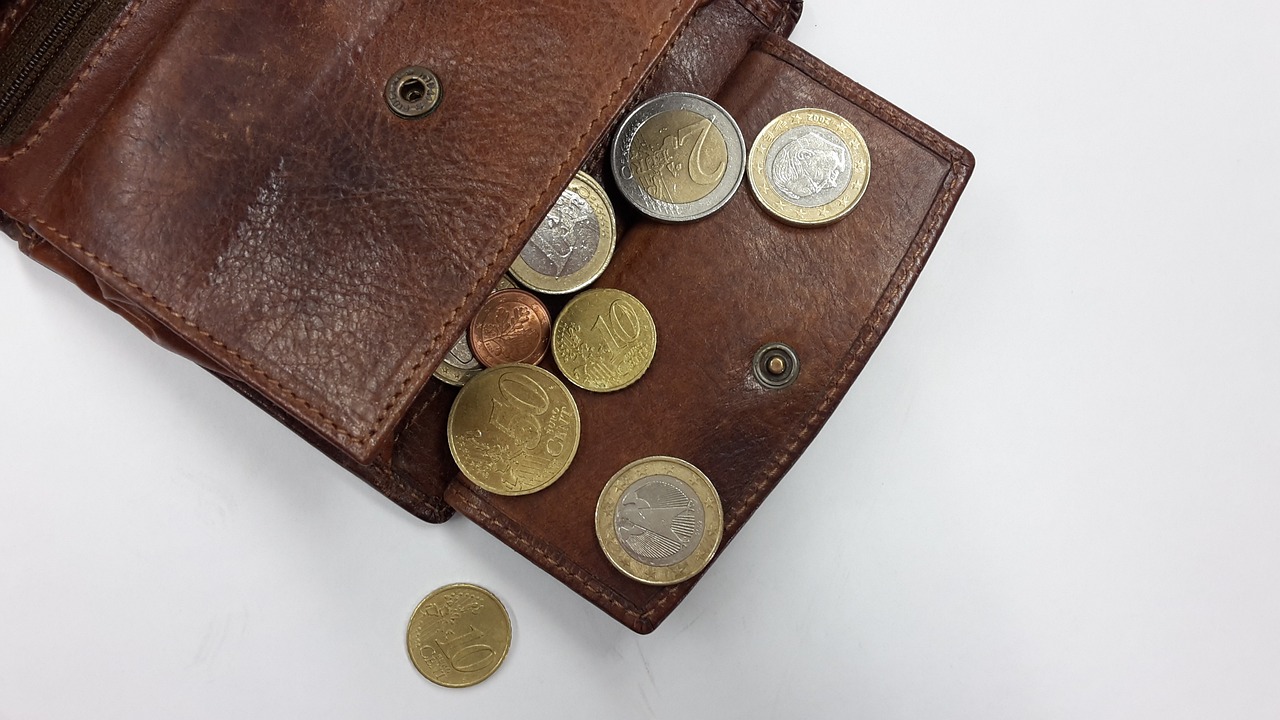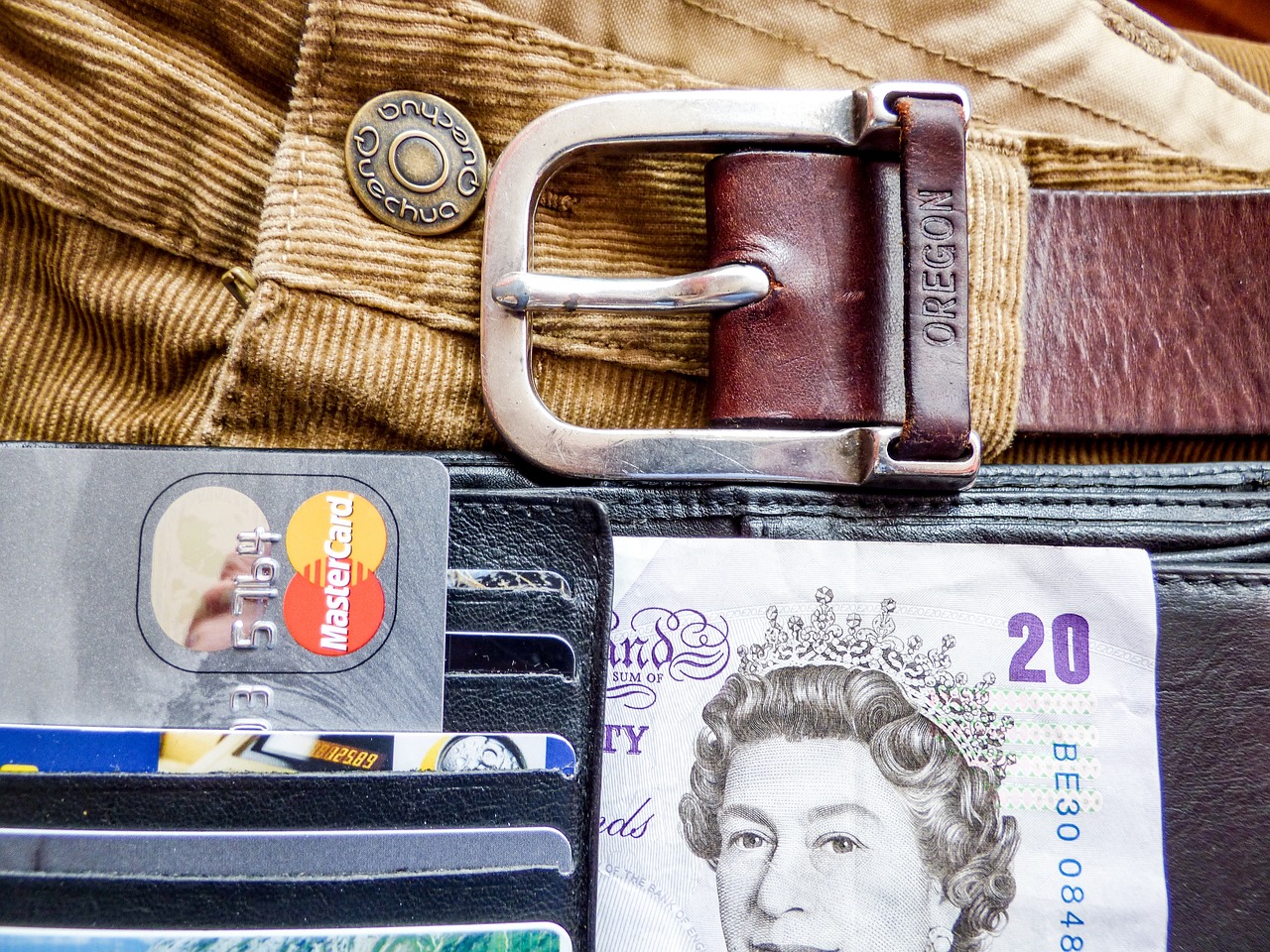How to Compare Different Cryptocurrency Wallets
In the ever-evolving landscape of digital currencies, choosing the right cryptocurrency wallet can feel like navigating a maze. With so many options available, how do you determine which wallet is the best fit for your needs? This guide will walk you through the essential aspects of comparing different cryptocurrency wallets, focusing on key features, security, usability, and more, all designed to help you make an informed decision.
First off, it’s important to understand that not all wallets are created equal. There are various types of wallets, each with its own unique features and benefits. From hardware wallets that offer top-notch security to software wallets that provide convenience and ease of access, knowing what each type brings to the table is crucial. Think of it like choosing a home; do you want a cozy apartment in the city or a secure house in the suburbs? Your choice should align with your lifestyle and needs.
When comparing wallets, security should be your number one priority. Imagine investing your hard-earned money only to lose it due to a security breach. Essential security features to look for include:
- Two-factor authentication - This adds an extra layer of security by requiring a second form of verification.
- Encryption - Ensures that your data is scrambled and unreadable to unauthorized users.
- Backup options - Allows you to recover your funds in case of device failure or loss.
Next, let’s dive into the technical aspects, specifically the importance of private and public keys. Your public key is like your email address; it’s safe to share and is used to receive funds. However, your private key is akin to your password—keep it secret and secure! Losing access to your private key can lead to irreversible loss of funds, so understanding how to manage these keys is vital.
Key management techniques can vary, but some effective methods include using hardware solutions, password managers, or even writing your keys down and storing them in a safe place. Each method has its pros and cons, much like deciding between a safe deposit box and a home safe. Weigh your options carefully to determine what works best for you.
Now, let’s talk about usability and user experience. A wallet might have all the security features in the world, but if it's difficult to use, it can lead to frustration, especially for beginners. Look for a wallet that offers a clean interface, intuitive navigation, and accessibility across devices. After all, you want your wallet to be as easy to use as your favorite app, right?
Transaction fees can also significantly impact your overall experience. Different wallets come with various fee structures, including withdrawal fees, deposit fees, and sometimes hidden costs. It’s essential to analyze these fees to ensure you’re not caught off guard. For example, while one wallet may have low withdrawal fees, it might charge higher deposit fees. A comprehensive comparison can save you a lot of money in the long run.
| Wallet Type | Withdrawal Fee | Deposit Fee | Other Costs |
|---|---|---|---|
| Hardware Wallet | $0 | $0 | Initial purchase cost |
| Software Wallet | $1 | $0.50 | Monthly subscription |
| Paper Wallet | $0 | $0 | Printing costs |
Integration with cryptocurrency exchanges is another factor to consider. A wallet that seamlessly connects with your favorite exchange can make trading much more efficient. Imagine being able to trade at the click of a button without unnecessary delays—this can be a game-changer for active traders.
Lastly, don’t overlook the range of supported cryptocurrencies. Some wallets only support a handful of coins, while others can accommodate a vast array of digital assets. If you’re planning to diversify your portfolio, choosing a wallet that supports multiple cryptocurrencies can save you the hassle of managing several wallets.
In conclusion, comparing cryptocurrency wallets is a multifaceted process that requires careful consideration of various factors. From security features and usability to transaction fees and cryptocurrency support, each aspect plays a crucial role in your overall experience. Take your time to research and evaluate your options, and you’ll be well on your way to finding the perfect wallet for your digital assets.
Q: What is the safest type of cryptocurrency wallet?
A: Hardware wallets are generally considered the safest option as they store your private keys offline, away from potential online threats.
Q: Can I use multiple wallets?
A: Yes, many users opt for multiple wallets to diversify their security and manage different cryptocurrencies effectively.
Q: What should I do if I lose my private key?
A: Unfortunately, if you lose your private key without a backup, you may permanently lose access to your funds. Always ensure to have secure backups in place.

Understanding Wallet Types
When diving into the world of cryptocurrencies, one of the first and most crucial steps is understanding the different types of cryptocurrency wallets available. Each wallet type serves a unique purpose and comes with its own set of features, advantages, and disadvantages. Whether you’re a seasoned trader or just starting out, knowing these distinctions can significantly impact how you manage your digital assets.
Let's break down the three primary categories of cryptocurrency wallets: hardware wallets, software wallets, and paper wallets. Each of these wallets has its own strengths and weaknesses, and choosing the right one can be akin to selecting the right tool for a job—each is designed to meet specific needs.
Hardware wallets are physical devices that securely store your cryptocurrency offline. They are often considered the gold standard for security because they keep your private keys away from potential online threats. Picture them as a vault where you can store your valuables—it's tough for a thief to get into a safe that is locked away. Some popular options in this category include the Trezor and Ledger wallets, which not only provide top-notch security but also support a wide range of cryptocurrencies.
On the other hand, software wallets are applications that can be installed on your computer or smartphone. They come in two flavors: desktop wallets and mobile wallets. While these wallets are generally more user-friendly and accessible, they are also more vulnerable to hacking attempts. Think of them as your personal wallet that you carry around; it's convenient, but you need to be cautious about where you take it. Some well-known software wallets include Exodus and Electrum, which offer a balance of usability and security.
Lastly, we have paper wallets. These are essentially just pieces of paper that contain your public and private keys. While they might seem outdated in this digital age, they can be incredibly secure if created and stored properly. Imagine writing down your most important secrets and locking them away in a safe—no one can hack a piece of paper that isn’t connected to the internet. However, the downside is that if you lose that paper, you lose access to your funds permanently.
To summarize, here’s a quick comparison table of the three wallet types:
| Wallet Type | Security Level | Usability | Best For |
|---|---|---|---|
| Hardware Wallet | High | Moderate | Long-term storage |
| Software Wallet | Moderate | High | Daily transactions |
| Paper Wallet | Very High | Low | Cold storage |
In conclusion, the choice of wallet depends on your specific needs and how you plan to use your cryptocurrency. If security is your top priority, a hardware wallet may be the best choice. If you’re looking for convenience and ease of use, software wallets are the way to go. And for those who prefer a more old-school approach, paper wallets offer a unique level of security, albeit with their own risks. Understanding these wallet types will empower you to make informed decisions as you navigate the exciting world of cryptocurrencies.

Security Features to Consider
When it comes to storing your hard-earned cryptocurrency, security should be your top priority. After all, the digital currency landscape can be a wild west of sorts, filled with risks and vulnerabilities. To safeguard your assets effectively, you need to be well-informed about the essential security features that different cryptocurrency wallets offer. Think of your wallet as a fortress; the stronger the walls, the safer your treasures. So, what should you look for?
First and foremost, two-factor authentication (2FA) is a non-negotiable feature. This adds an extra layer of security by requiring not just your password but also a second form of verification, such as a code sent to your mobile device. Imagine having a double lock on your front door; it makes it significantly harder for intruders to gain access. Additionally, encryption is crucial. This process scrambles your data, making it unreadable to anyone who doesn't have the decryption key. Just like a secret code, it keeps your information safe from prying eyes.
Another important aspect to consider is the wallet's backup options. A reliable wallet should allow you to create backups of your data, ensuring that even if your device fails, you can still recover your assets. Think of it as having a spare key hidden away in a safe place; it can save you from a lot of headaches down the road. Some wallets even offer multi-signature support, which requires multiple approvals for transactions, adding another layer of security. This is particularly useful for businesses or individuals managing large amounts of cryptocurrency.
Now, let's dive deeper into the technical side with a quick overview of some essential security features:
| Security Feature | Description |
|---|---|
| Two-Factor Authentication (2FA) | Requires a second form of verification for access. |
| Encryption | Protects your data by scrambling it into unreadable format. |
| Backup Options | Allows you to create copies of your wallet data for recovery. |
| Multi-Signature Support | Requires multiple approvals for transactions, enhancing security. |
Understanding the importance of private and public keys is also essential. Your public key is like your email address; it’s what you share with others to receive funds. However, your private key is akin to your email password. If someone gets access to it, they can drain your wallet in no time. Therefore, safeguarding your private key is crucial. Use hardware wallets or secure password managers to keep it safe. You wouldn’t leave your house keys lying around, right? Treat your private keys with the same level of care.
In summary, when evaluating cryptocurrency wallets, prioritize security features that provide peace of mind. Look for wallets that offer two-factor authentication, robust encryption, reliable backup options, and multi-signature support. By doing so, you’re not just protecting your investments; you’re also ensuring that your digital assets remain safe from potential threats.
1. What is two-factor authentication, and why is it important?
Two-factor authentication adds an extra layer of security by requiring a second form of verification, making unauthorized access significantly harder.
2. How do I keep my private key secure?
Use hardware wallets or secure password managers to store your private key and avoid sharing it with anyone.
3. What should I do if I lose access to my wallet?
If your wallet has backup options, you can restore your funds. Always ensure you create backups when setting up your wallet.
4. Is it safe to use a software wallet?
Software wallets can be safe if they offer robust security features like encryption and two-factor authentication. However, hardware wallets are generally considered more secure.

Private vs. Public Keys
When diving into the world of cryptocurrency, understanding the difference between private and public keys is crucial. Think of your public key as your email address. It’s something you can share with others to receive funds, just like you would give someone your email to receive messages. On the other hand, your private key is akin to your email password—something you must keep secret and secure at all costs. If someone gains access to your private key, they can control your funds and make transactions without your permission, leading to potential financial disaster.
Public keys are derived from private keys through a cryptographic process, ensuring that while they are connected, they remain distinct. This relationship is fundamental to how cryptocurrencies function, allowing for secure transactions without revealing sensitive information. When you send or receive cryptocurrency, you use your public key to facilitate the transfer, while your private key remains hidden, safeguarding your assets.
To further illustrate the importance of these keys, consider the following:
| Type of Key | Purpose | Security Level |
|---|---|---|
| Public Key | Used to receive funds | Low (can be shared) |
| Private Key | Used to access and manage funds | High (must be kept secret) |
In the cryptocurrency realm, the phrase “not your keys, not your coins” rings true. This means that if you do not control your private keys, you do not truly own your cryptocurrency. Many users fall into the trap of keeping their assets on exchanges, which manage the keys for you. While this can be convenient, it also exposes you to risks, such as hacks or exchange failures. Therefore, understanding the significance of both keys is vital for anyone serious about investing in or using cryptocurrencies.
Moreover, safeguarding your private key involves employing effective key management techniques. You might consider using hardware wallets, which store your keys offline, or password managers that offer secure storage solutions. It’s essential to prioritize the security of your private key, as losing it means losing access to your funds permanently. Imagine throwing away the key to a safe filled with your life savings; that’s the reality of misplacing your private key.
In conclusion, grasping the distinction between private and public keys is a foundational step in navigating the cryptocurrency landscape. By treating your private key with the utmost care and understanding its role in securing your assets, you can significantly enhance your safety and confidence in managing digital currencies.
- What happens if I lose my private key? Losing your private key means you cannot access your funds. There are no recovery options, so it's vital to back it up securely.
- Can I share my public key? Yes, your public key can be shared with anyone who needs to send you cryptocurrency.
- How can I keep my private key safe? Use hardware wallets, secure password managers, and always have a backup stored in a safe location.

Key Management Techniques
When it comes to managing your cryptocurrency keys, adopting effective is crucial. Imagine your private key as the key to your digital vault. If you lose it, your funds are as good as gone! So, how do we ensure that we keep this vital piece of information secure? Let's dive into some proven strategies that can help you manage your keys effectively.
First and foremost, consider using hardware wallets. These devices store your private keys offline, making them significantly less vulnerable to hacks and malware compared to software wallets. Think of it as keeping your valuables in a safe rather than under your mattress. Popular options include devices from brands like Ledger and Trezor, which offer robust security features and user-friendly interfaces.
Additionally, employing a password manager can be a game-changer for your key management. These tools can securely store and encrypt your keys, ensuring that you have access to them whenever needed without the risk of forgetting or misplacing them. Just like you wouldn’t store your house keys in an obvious place, a password manager keeps your sensitive information tucked away safely.
It's also essential to practice best practices for storing and accessing your keys. Always enable two-factor authentication (2FA) on your wallets and accounts whenever possible. This adds an extra layer of security, making it much harder for unauthorized users to gain access. Furthermore, consider keeping a secure backup of your private keys in a physical format, such as a paper wallet. This way, even if your hardware wallet fails or becomes lost, you still have a way to access your funds.
In addition to these methods, it’s vital to stay educated about potential threats. Regularly updating your software and being cautious of phishing attempts can help safeguard your keys. Remember, staying informed is your first line of defense against cyber threats.
In summary, managing your cryptocurrency keys doesn’t have to be a daunting task. By utilizing hardware wallets, password managers, and following best practices, you can significantly reduce the risk of losing access to your digital assets. With these techniques in place, you can enjoy peace of mind knowing that your investments are secure and well-managed.
- What is a hardware wallet? A hardware wallet is a physical device that securely stores your private keys offline, minimizing the risk of hacking.
- Why should I use a password manager? A password manager helps securely store and encrypt your private keys, making them easily accessible while keeping them safe from unauthorized access.
- What is two-factor authentication (2FA)? 2FA is an extra layer of security that requires not only a password and username but also something that only the user has on them, such as a physical token or a mobile device.
- Can I recover my funds if I lose my private key? Unfortunately, if you lose your private key and do not have a backup, you will permanently lose access to your funds.

Risks of Key Loss
Imagine waking up one morning to find that your digital wallet is empty, and the only thing standing between you and your hard-earned cryptocurrency is a lost private key. The risks associated with key loss are not just theoretical; they can lead to devastating consequences. When you lose your private key, you essentially lose access to your funds permanently. Unlike traditional banking systems, where you can reset a password or retrieve access through customer service, cryptocurrency operates on a decentralized model. This means that there is no 'help desk' to call or a 'forgot password' link to click. Your funds are gone, and there’s usually no way to recover them.
Moreover, the implications of losing your private key extend beyond just financial loss. It can also lead to emotional distress and anxiety. The thought of having your investments vanish into thin air can be overwhelming. This is especially true for individuals who have invested significant amounts of money into cryptocurrencies. The reality is that many people have faced this unfortunate scenario, and the stories often serve as cautionary tales for others.
To mitigate the risks associated with key loss, it’s essential to adopt robust key management practices. Here are some strategies to consider:
- Back Up Your Keys: Regularly back up your private keys and store them in multiple secure locations. Consider using both physical and digital forms of backup.
- Use Hardware Wallets: Invest in a reliable hardware wallet that keeps your private keys offline, significantly reducing the risk of hacks and key loss.
- Implement Strong Passwords: If you use software wallets, ensure that you use strong, unique passwords and consider using password managers to keep track of them.
Additionally, understanding the potential risks associated with key loss can help you make informed decisions about your cryptocurrency investments. The following table summarizes some of the critical risks and their potential impacts:
| Risk | Impact |
|---|---|
| Permanent Loss of Funds | Access to cryptocurrency is completely lost, leading to financial loss. |
| Emotional Stress | Feelings of anxiety and regret can arise from the loss. |
| Inability to Trade | Loss of access to your funds prevents you from trading or investing further. |
In conclusion, the risks of key loss in cryptocurrency are significant and can have lasting effects on your financial well-being. By taking proactive measures to secure your private keys, you can protect yourself from the nightmare of losing access to your digital assets. Always remember, in the world of cryptocurrency, your security is in your hands.
Q1: What happens if I lose my private key?
A1: If you lose your private key, you lose access to your cryptocurrency permanently. There is no way to recover your funds without it.
Q2: How can I prevent losing my private key?
A2: You can prevent losing your private key by backing it up securely, using hardware wallets, and implementing strong password management practices.
Q3: Are there any recovery options for lost keys?
A3: Unfortunately, there are no recovery options for lost private keys in most cases. It's crucial to take preventive measures to secure them.

Usability and User Experience
When it comes to choosing a cryptocurrency wallet, usability and user experience are critical factors that can significantly impact your overall satisfaction. Imagine trying to navigate a complex interface while you're in the middle of a transaction—frustrating, right? A wallet that is intuitive and easy to use can make your crypto journey much smoother, especially if you're a beginner. So, what should you consider when evaluating the usability of different wallets?
First off, the user interface (UI) plays a huge role. A clean, well-organized UI helps users quickly find what they need without unnecessary clicks. Look for wallets that offer a dashboard displaying your balances, recent transactions, and easy access to key features. If the wallet feels cluttered or overwhelming, it might not be the best choice for you.
Next, think about accessibility. Can you use the wallet on different devices? Many users prefer wallets that have both mobile and desktop versions, allowing them to manage their assets on the go. Moreover, does the wallet support multiple operating systems? This flexibility ensures you can access your funds anytime, anywhere, without being tied to a specific device.
Another aspect to consider is the learning curve. If a wallet requires extensive tutorials or guides just to get started, it might be a sign that it’s not user-friendly. Ideally, a wallet should have a straightforward onboarding process, guiding you through the setup without overwhelming you with jargon. A good wallet will offer helpful tips and support resources that can enhance your understanding without making you feel lost in the technicalities.
Lastly, let’s not forget about customer support. Even the best wallets can have issues or questions arise, so having a reliable support system in place is essential. Look for wallets that offer multiple channels of support, such as live chat, email, or a comprehensive FAQ section. This can make a world of difference when you need assistance, ensuring that you’re not left in the dark.
In summary, when evaluating the usability and user experience of cryptocurrency wallets, consider the following:
- User Interface: Is it clean and easy to navigate?
- Accessibility: Can you use it on various devices?
- Learning Curve: Is it easy to understand and set up?
- Customer Support: Is there reliable help available when needed?
By keeping these factors in mind, you can choose a wallet that not only meets your security needs but also makes managing your cryptocurrency a breeze.
Q1: What is the most user-friendly cryptocurrency wallet?
A1: The most user-friendly wallet varies by personal preference, but wallets like Coinbase and Exodus are often praised for their intuitive interfaces.
Q2: Can I use a cryptocurrency wallet on my mobile device?
A2: Yes, many wallets offer mobile applications, allowing you to manage your assets on the go. Always check for compatibility with your device.
Q3: What should I do if I forget my wallet password?
A3: Most wallets provide recovery options, such as recovery phrases or email verification. If you lose access, refer to the wallet's support documentation for specific recovery steps.

Transaction Fees and Costs
When diving into the world of cryptocurrency, understanding transaction fees and costs is crucial. Think of it as the toll you pay on the digital highway of trading. Every time you make a transaction, whether it's sending or receiving cryptocurrency, there's a cost associated with it. These fees can vary widely depending on the wallet you choose, the type of transaction, and even the current network congestion. It's essential to be aware of these costs to avoid any nasty surprises that could eat into your investment.
Different wallets come with different fee structures. Some may charge a flat fee per transaction, while others might have a percentage-based fee. It's also worth noting that there might be additional costs like withdrawal fees, deposit fees, or even hidden costs that can sneak up on you. For example, if you're using a wallet that integrates with an exchange, you might face fees that aren't immediately obvious. Here’s a quick breakdown of common fees:
| Fee Type | Description |
|---|---|
| Transaction Fee | A fee paid to miners or validators for processing your transaction on the blockchain. |
| Withdrawal Fee | A fee charged when you withdraw funds from your wallet to an external account. |
| Deposit Fee | A fee incurred when you deposit funds into your wallet from an external source. |
| Conversion Fee | A fee for converting one cryptocurrency to another within the wallet. |
Now, you might be wondering, “How do I find the best wallet for my needs?” Well, it's all about comparing the fee structures of popular wallets. Some wallets may offer lower fees for certain types of transactions but might charge more for others. It’s like shopping for groceries; you want to find the best prices for the items you buy most frequently. Here are a few tips to help you evaluate:
- Research: Look up reviews and comparisons of different wallets to get a sense of their fee structures.
- Calculate Costs: If you have a specific trading pattern, calculate the total fees you would incur with each wallet.
- Ask Questions: Don’t hesitate to reach out to customer support for clarification on any fees that seem unclear.
Long-term cost considerations are also vital. It’s not just about the fees today; think about how these costs will accumulate over time. If you plan on being an active trader, even small fees can add up quickly and impact your overall investment strategy. For instance, if you’re using a wallet that charges a high transaction fee but offers exceptional security and usability, you’ll need to weigh those costs against the benefits it provides.
Ultimately, choosing a wallet is like picking a partner for a journey. You want someone who understands your needs, supports your goals, and doesn’t drain your resources along the way. So, take the time to evaluate the transaction fees and costs associated with your options, and don’t rush the decision. After all, a well-informed choice can save you a lot of headaches—and money—in the long run.
What are transaction fees in cryptocurrency?
Transaction fees are charges incurred when you send or receive cryptocurrency. They compensate miners or validators for processing transactions on the blockchain.
How can I minimize transaction fees?
You can minimize transaction fees by choosing wallets with lower fees, timing your transactions during off-peak hours, or consolidating transactions to reduce the number of fees you pay.
Are there hidden fees in cryptocurrency wallets?
Yes, some wallets may have hidden fees, such as conversion fees or withdrawal fees that are not immediately obvious. Always read the fine print and check for any additional costs.

Comparing Fee Structures
When diving into the world of cryptocurrency wallets, one of the most crucial factors to consider is the fee structure. Wallets can come with various fees that can significantly impact your overall trading experience and profitability. It’s essential to understand not just the obvious fees, but also the hidden costs that might lurk beneath the surface, waiting to catch you off guard. Think of it like shopping for a new car; the sticker price might look good, but what about insurance, maintenance, and fuel costs? Similarly, with wallets, you need to look beyond the initial appeal.
Typically, cryptocurrency wallets may charge several types of fees, including:
- Withdrawal Fees: These are fees charged when you send your cryptocurrency from the wallet to another account or exchange. Different wallets have different withdrawal fee structures, and some may even offer free withdrawals under certain conditions.
- Deposit Fees: Not all wallets charge for deposits, but some might have fees associated with adding funds, especially if you’re using fiat currency.
- Transaction Fees: These fees occur during the process of sending or receiving cryptocurrency and can vary based on network congestion and the wallet provider.
- Maintenance Fees: Some wallets may charge a monthly or annual fee for maintaining your account, though many reputable wallets do not.
To aid in your decision-making process, let’s take a look at a comparative table of popular wallets and their respective fee structures:
| Wallet Name | Withdrawal Fee | Deposit Fee | Transaction Fee | Maintenance Fee |
|---|---|---|---|---|
| Wallet A | 0.0005 BTC | Free | 0.1% of transaction | No |
| Wallet B | 0.001 BTC | 0.5% | 0.2% of transaction | Annual fee of $10 |
| Wallet C | Free | Free | 0.15% of transaction | No |
As you can see, the fee structures can vary dramatically between wallets. Wallet A might seem appealing due to its low withdrawal fee, but if you plan to deposit frequently, Wallet C could save you more in the long run with no deposit fees at all. It’s all about aligning the wallet’s fee structure with your trading habits and investment strategy.
Moreover, it’s wise to read the fine print and understand any potential changes in fees that might occur. Some wallets may offer promotional periods where fees are reduced, but these can revert to standard rates after a set time. Always keep an eye on the wallet’s terms and conditions to avoid unexpected surprises. Remember, the goal is to find a wallet that not only fits your needs but also helps you maximize your investment without draining your resources through excessive fees.
Q: What is the most common fee for cryptocurrency wallets?
A: The most common fees associated with cryptocurrency wallets are withdrawal fees and transaction fees. These can vary widely between different wallet providers.
Q: Are there wallets with no fees?
A: While some wallets offer no fees for deposits and withdrawals, it’s essential to review their transaction fees and any other potential hidden costs.
Q: How can I minimize fees when using a cryptocurrency wallet?
A: To minimize fees, consider using wallets with lower withdrawal and transaction fees, and always check for any promotional offers or fee waivers.

Long-term Cost Considerations
When it comes to choosing a cryptocurrency wallet, it’s essential to think beyond the initial setup and consider the long-term costs associated with using that wallet. Just like buying a car, the sticker price is only part of the equation; you also need to factor in fuel, insurance, and maintenance. Similarly, cryptocurrency wallets come with various ongoing expenses that can add up over time, impacting your overall investment strategy.
One of the primary costs to consider is the transaction fees, which can vary significantly from one wallet to another. These fees can include withdrawal fees, deposit fees, and even fees for converting cryptocurrencies. For instance, if you frequently trade, a wallet with lower transaction fees can save you a substantial amount over time. Imagine paying a small fee every time you buy a coffee; it doesn’t seem like much at first, but it adds up quickly!
Another aspect to think about is the maintenance fees. Some wallets charge monthly or annual fees for ongoing support and updates. If you’re using a wallet that requires you to pay for additional features or services, you might want to calculate how those costs stack up against the benefits. It’s like subscribing to a gym; if you’re not using it regularly, the monthly fee can feel like a waste.
Additionally, consider the potential costs associated with upgrades or changes in the wallet's service structure. As the cryptocurrency market evolves, some wallets may introduce new features that come with a price tag. Staying informed about these changes can help you avoid unexpected charges. Think of it as keeping an eye on your utility bills—small changes can lead to big surprises if you’re not vigilant.
| Type of Cost | Examples | Potential Impact |
|---|---|---|
| Transaction Fees | Withdrawal, Deposit, Conversion | Can significantly reduce profits if high |
| Maintenance Fees | Monthly/Annual Charges | Ongoing cost that can add up |
| Upgrade Costs | New Features, Enhanced Security | Unexpected expenses if not monitored |
Finally, it's vital to assess the long-term viability of the wallet provider. If a wallet is not regularly updated or has a history of security breaches, it could lead to unforeseen costs in the future. You wouldn’t invest in a company that looks like it’s on the verge of bankruptcy, right? The same principle applies here. Always do your due diligence to ensure that the wallet you choose is not only cost-effective but also reliable and secure.
In summary, while the initial costs of setting up a cryptocurrency wallet are important, the long-term costs are equally crucial. By carefully evaluating transaction fees, maintenance charges, potential upgrade costs, and the overall reliability of the wallet provider, you can make a more informed decision that aligns with your financial goals.
- What are the most common fees associated with cryptocurrency wallets? Transaction fees, maintenance fees, and upgrade costs are the most common.
- How can I minimize my wallet costs? Choose a wallet with low transaction fees, avoid unnecessary upgrades, and stay informed about any changes in fee structures.
- Is it worth paying for a wallet with maintenance fees? It depends on the features offered. If the wallet provides excellent security and usability, it may be worth the cost.

Integration with Exchanges
When diving into the world of cryptocurrency, one of the most critical aspects to consider is how well your chosen wallet integrates with various cryptocurrency exchanges. This integration can make or break your trading experience, especially if you’re looking to buy, sell, or swap your digital assets quickly. Imagine trying to catch a wave while surfing; if your board isn’t equipped for the ride, you might find yourself wiping out instead of cruising smoothly. The same principle applies here—seamless integration with exchanges ensures that you can navigate the turbulent waters of the crypto market without unnecessary delays.
Different wallets offer varying levels of compatibility with exchanges, and this can significantly influence your trading efficiency. For instance, some wallets allow direct trading from within the app, while others may require you to transfer funds back and forth between the wallet and the exchange. This can lead to extra transaction fees and time delays, which can be frustrating when the market is volatile.
Furthermore, it’s essential to consider the types of exchanges that your wallet supports. Some wallets are designed to work with decentralized exchanges (DEXs), while others may only support centralized platforms. Here’s a quick breakdown:
| Wallet Type | Supported Exchanges |
|---|---|
| Hardware Wallets | Centralized Exchanges, DEXs (with limitations) |
| Software Wallets | Centralized Exchanges, DEXs |
| Paper Wallets | Centralized Exchanges (manual transfer only) |
As you can see, hardware wallets may offer enhanced security but can be somewhat limited in their direct exchange capabilities. On the other hand, software wallets tend to provide a more flexible trading experience, allowing you to interact with various exchanges more seamlessly. If you’re a frequent trader, you’ll want a wallet that minimizes the hassle of moving funds between platforms.
Additionally, look for wallets that offer API integration with exchanges. This feature is especially beneficial for developers and businesses looking to automate their trading strategies or build applications around cryptocurrency transactions. With API support, you can create a more customized trading experience, allowing for quicker transactions and better management of your portfolio.
In summary, when evaluating a cryptocurrency wallet, consider how well it integrates with your preferred exchanges. A wallet that offers seamless transactions can save you time, reduce fees, and enhance your overall trading experience. So, before you make your choice, ask yourself: does this wallet help me ride the waves of the crypto market, or does it leave me stranded on the shore?
- What is the importance of wallet integration with exchanges?
Wallet integration allows for quick and efficient trading without the need to transfer funds back and forth, saving time and reducing transaction fees. - Can I use my wallet with multiple exchanges?
Yes, many wallets support multiple exchanges, but it's essential to check compatibility before proceeding. - What is API integration in wallets?
API integration allows developers to connect their applications to cryptocurrency exchanges for automated trading and portfolio management.

Supported Cryptocurrencies
When selecting a cryptocurrency wallet, one of the most crucial factors to consider is the range of . Not all wallets are created equal, and some may only cater to a handful of digital assets while others boast a comprehensive list that includes popular and emerging coins alike. For instance, if you’re an investor who diversifies your portfolio across numerous cryptocurrencies, choosing a wallet that supports a wide variety is essential. This can save you time and hassle when managing your investments.
Many wallets today support major cryptocurrencies such as Bitcoin (BTC), Ethereum (ETH), and Litecoin (LTC). However, if you're looking to invest in lesser-known altcoins, you might find that your options are limited. Here’s a brief overview of some common categories of supported cryptocurrencies:
| Cryptocurrency | Market Cap Rank | Wallet Type |
|---|---|---|
| Bitcoin (BTC) | 1 | All Wallet Types |
| Ethereum (ETH) | 2 | All Wallet Types |
| Litecoin (LTC) | 10 | All Wallet Types |
| Ripple (XRP) | 6 | Some Wallets |
| Cardano (ADA) | 7 | Some Wallets |
As you can see from the table, while major cryptocurrencies are widely supported across various wallets, some wallets might not have the capability to store certain altcoins. This limitation can pose a challenge for traders who want to capitalize on emerging trends. Therefore, always check the wallet’s compatibility with your desired cryptocurrencies before making a decision.
Moreover, it’s also worth considering the future potential of the cryptocurrencies you plan to invest in. Some wallets are regularly updated to include new coins, while others may lag behind. This can affect your ability to trade or hold certain assets, which is why you should always keep an eye on updates from your wallet provider.
In conclusion, the variety of supported cryptocurrencies can significantly influence your choice of a wallet. Whether you’re a casual investor or a serious trader, ensuring that your wallet can accommodate your entire portfolio is vital. Remember, the right wallet not only provides security but also enhances your trading experience by allowing easy access to your coins.
- What is the best wallet for multiple cryptocurrencies?
There are several wallets that support a wide range of cryptocurrencies, including Exodus, Atomic Wallet, and Trust Wallet. Each has its own unique features, so it’s essential to choose one that fits your needs.
- Are hardware wallets better for security?
Yes, hardware wallets are considered one of the safest options for storing cryptocurrencies as they keep your private keys offline, reducing the risk of hacks.
- Can I use the same wallet for different cryptocurrencies?
Most multi-currency wallets allow you to store various cryptocurrencies in one place, making it convenient for managing your investments.

API and Developer Support
When diving into the world of cryptocurrency wallets, are often overlooked yet crucial aspects to consider. An Application Programming Interface (API) allows developers to interact with the wallet's functionalities programmatically. This is especially important for businesses or developers looking to build applications that require seamless cryptocurrency transactions. Imagine you’re a developer wanting to create a trading platform; having access to a robust API means you can easily integrate wallet functionalities into your application, enhancing user experience and operational efficiency.
Moreover, the quality of developer support can make or break your experience with a wallet. A wallet that provides thorough documentation, active support channels, and community engagement can significantly ease the integration process. When evaluating wallets, look for the following:
- Documentation: Comprehensive and clear documentation is essential. It should cover everything from basic setup to advanced features.
- Support Channels: Access to responsive support teams can save you time and frustration. Look for wallets that offer chat, email, or forum support.
- Community Engagement: A strong developer community can provide insights, troubleshooting tips, and shared experiences that can enhance your development process.
Many wallets offer APIs that allow developers to access various features such as:
| Feature | Description |
|---|---|
| Transaction Management | Allows developers to send, receive, and track transactions programmatically. |
| Account Management | Enables the creation, deletion, and management of user accounts. |
| Real-Time Data Access | Provides real-time access to market data, transaction history, and account balances. |
Choosing a wallet that offers solid API support can also future-proof your investments. As the cryptocurrency landscape evolves, having a wallet that can adapt and integrate with new technologies will be invaluable. Whether you’re a developer looking to create an innovative product or a business wanting to streamline your operations, evaluating the API and developer support of a cryptocurrency wallet can lead you to the right choice.
1. What is an API in the context of cryptocurrency wallets?
An API, or Application Programming Interface, allows developers to interact with a wallet's features programmatically, facilitating integration with applications and services.
2. Why is developer support important?
Good developer support ensures that you can effectively use the wallet's features, troubleshoot issues, and get assistance when needed, making the development process smoother.
3. How do I know if a wallet has a good API?
Look for wallets that provide comprehensive documentation, responsive support channels, and an active community. User reviews and developer experiences can also provide insights.
4. Can I use multiple wallets for different cryptocurrencies?
Yes, many users opt to use multiple wallets to manage different cryptocurrencies, especially if certain wallets offer better support for specific coins.
Frequently Asked Questions
-
What are the different types of cryptocurrency wallets?
Cryptocurrency wallets come in several types, including hardware wallets, which are physical devices that store your keys offline; software wallets, which can be desktop, mobile, or web-based applications; and paper wallets, which are simply printed pieces of paper containing your keys. Each type has its own pros and cons, so it's essential to choose one that fits your needs.
-
How important is wallet security?
Security is absolutely crucial when it comes to cryptocurrency wallets. With the rise of hacking and scams, it's vital to choose a wallet that offers robust security features like two-factor authentication, encryption, and backup options. Remember, if you lose access to your wallet or your private keys, you could potentially lose all your funds!
-
What is the difference between private and public keys?
Think of your public key as your bank account number that you can share with others to receive funds, while your private key is like your ATM PIN that you must keep secret. The private key is crucial for accessing and managing your cryptocurrency, so safeguarding it is essential to prevent unauthorized access to your funds.
-
What should I do if I lose my private keys?
Losing your private keys can lead to the permanent loss of your cryptocurrency. To mitigate this risk, it's wise to have secure backups in place. This could involve using hardware wallets, password managers, or writing down your keys in a secure location. Always remember, prevention is better than cure!
-
How do transaction fees work with wallets?
Transaction fees can vary significantly between different wallets. Fees may include withdrawal and deposit fees, and sometimes there are hidden costs that can catch you off guard. It's essential to analyze these fees before choosing a wallet to ensure it aligns with your trading habits and financial goals.
-
Can I use my wallet with multiple cryptocurrencies?
Many wallets support a range of cryptocurrencies, which can be a game-changer for your investment strategy. When choosing a wallet, check the list of supported cryptocurrencies to ensure it aligns with your portfolio. Compatibility can significantly influence your trading experience!
-
What is API access, and why does it matter?
API access allows developers to integrate their applications with the wallet, enabling features like automated trading and enhanced functionalities. If you're a developer or a business looking to build on cryptocurrency, having good developer support and API access can be crucial for your projects.



















